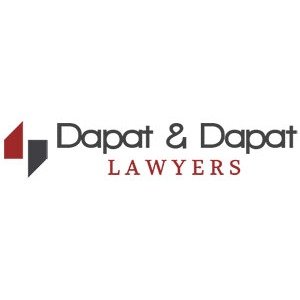Best Child Abuse Lawyers in Antipolo City
Share your needs with us, get contacted by law firms.
Free. Takes 2 min.
Free Guide to Hiring a Family Lawyer
List of the best lawyers in Antipolo City, Philippines
About Child Abuse Law in Antipolo City, Philippines:
In Antipolo City, as well as the rest of the Philippines, child abuse laws are based on the "Child and Youth Welfare Code" (Presidential Decree No. 603), the "Special Protection of Children Against Abuse, Exploitation, and Discrimination Act" (Republic Act No. 7610), and the "Act Requiring the Registration of all Child Care Institutions and Facilities under the Department of Social Welfare and Development" (Republic Act No. 10165). These laws are designed to protect children from various forms of abuse, including physical, emotional, and sexual abuse, as well as neglect and exploitation.
Why You May Need a Lawyer:
You may need a lawyer in cases of suspected child abuse if you are a parent or guardian trying to protect your child, a relative trying to intervene, a teacher or other professional worried about a child's welfare, or if you have been wrongly accused of abusing a child. A lawyer can guide you on the appropriate legal steps to take, represent you in court, and ensure you understand your rights and responsibilities.
Local Laws Overview:
In Antipolo City, child abuse is taken very seriously and is punishable by law. It includes any act of violence or neglect that endangers the child's physical, mental or emotional health. Sexual abuse, child labor, trafficking and other harmful practices are all categorized as child abuse. The local government strives to enforce child protections laws, collaborate with non-governmental organizations and child protection agencies, facilitate rehabilitative services, and develop preventive programs.
Frequently Asked Questions:
What to do if I suspect a child is being abused?
If you suspect a child is being abused, contact your local Barangay Council for the Protection of Children (BCPC) or the Department of Social Welfare and Development (DSWD). They are trained to handle such situations and can conduct a proper investigation.
What proof is needed for child abuse?
Evidence can range from physical signs of abuse, medical records, testimonies from the child or witnesses, and changes in the child's behavior. An experienced lawyer can assist in gathering necessary evidences.
Will I be protected if I report child abuse?
Yes, individuals who report child abuse in good faith are provided with immunity from civil and criminal liability under RA No. 7610.
What is the penalty for child abuse?
According to RA No. 7610, child abuse can result in imprisonment from six years and one day up to twenty years, depending on the gravity of the offense, along with a fine ranging from P100,000 to P2,000,000.
Can I anonymously report child abuse?
Yes, reports about child abuse may be made anonymously. The authorities are mandated to keep your identity confidential, unless disclosure is necessary for legal proceedings.
Additional Resources:
Local resources available for assistance include the Department of Social Welfare and Development (DSWD), Antipolo City Social Welfare and Services Office, and various non-governmental organizations such as the Child Protection Network. For legal support, the Public Attorney's Office (PAO) provides free legal assistance to those who cannot afford a private attorney.
Next Steps:
If you or a child you know is a victim of abuse, immediately report it to the local authorities or child protection agencies. If you need legal assistance, get in touch with a lawyer or the Public Attorney's Office (PAO). It is essential to act quickly to protect the child's welfare and to ensure the appropriate legal measures are taken.
Lawzana helps you find the best lawyers and law firms in Antipolo City through a curated and pre-screened list of qualified legal professionals. Our platform offers rankings and detailed profiles of attorneys and law firms, allowing you to compare based on practice areas, including Child Abuse, experience, and client feedback.
Each profile includes a description of the firm's areas of practice, client reviews, team members and partners, year of establishment, spoken languages, office locations, contact information, social media presence, and any published articles or resources. Most firms on our platform speak English and are experienced in both local and international legal matters.
Get a quote from top-rated law firms in Antipolo City, Philippines — quickly, securely, and without unnecessary hassle.
Disclaimer:
The information provided on this page is for general informational purposes only and does not constitute legal advice. While we strive to ensure the accuracy and relevance of the content, legal information may change over time, and interpretations of the law can vary. You should always consult with a qualified legal professional for advice specific to your situation.
We disclaim all liability for actions taken or not taken based on the content of this page. If you believe any information is incorrect or outdated, please contact us, and we will review and update it where appropriate.








